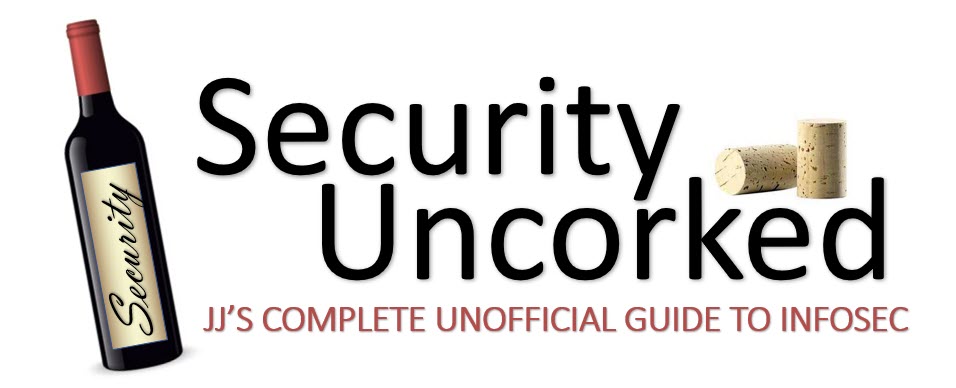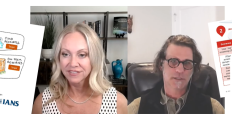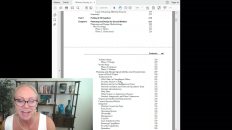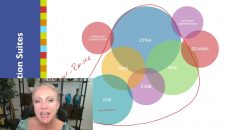I’m starting to feel “strategery” should be added to the dictionary. I mean, c’mon, have you SEEN the crap Oxford and Webster are buying in to these days? Half those things aren’t even real slang words.
Here’s a slightly more serious conversation that the past couple. And mostly that’s because I’m going to pilfer my post from the Official (ISC)2 Election Forum on LinkedIn and share it here so it’s more accessible. I’m told you have to request to join the LinkedIn group and I’m not sure why that’s the process, but I’m interested in sharing wherever/however people want to consume. And, by golly, social media seems to be the platform of choice for election rants and rhetoric — at least in the U.S.
As shared at the Election Forum https://www.linkedin.com/groups/12017541/12017541-6201075409237405700
To elaborate and tie together a couple of the other topics here and answer questions that have come in through other means (Facebook, Twitter, CISSP Elections Yahoo forum). I wanted to share some of the specific items I’d like to do/see done in the next years as a board member.
1) Finalize and solidify the processes being developed, packaging succession methodologies to make the board more effective in transitions
Some important housekeeping (read why in my last post)
Now that there are term limits, and 2017 is the first year of real effect of those, succession will be critical for momentum of new/incoming board members. I’d like to finish helping build processes for capturing meaningful notes of committee projects, outstanding tasks, goals, and milestones; add methods for tracking board effectiveness. The org takes its direction from the board, so the board needs to be efficient and effective to best serve the members. There’s a lot of un-glamorous grunt-work to be done here, and I’m ready for it.
2) Lead a framework for strategy moving forward
This is what the board should be doing but failed in the past
Honestly when I ran for the board last time, I thought the underlying contributor to what I saw as the main problems was the organization’s leadership. I quickly realized it was the BOARD members (not the management) responsible for a lot of the issues (see #3 below). In addition there was no real leadership from the board in terms of strategy and direction so everyone kept doing what they had always been doing. I think the management team did a fantastic job in spite of that. It was the product of not having fresh perspectives (now resolved through term limits) and being overly paranoid about what could be shared or done with the industry and members. I think the org is at a tipping point now and 2017 will be the first year of major visible change.
Please remember the board needs strategic thinkers, not just “good security people”. Business leadership is a huge asset.
3) Continue pushing for better communication and transparency
There is some momentum but much work to be done
This is still a huge sticking point for me, and something I am embarrassed we haven’t done better with. In fact, I’m embarrassed that *I* especially couldn’t affect more change than I did so far. Unfortunately the board of past years didn’t see value in regular communication to the members, and that paranoia stopped much activity I tried to start. Also know that the chairperson has extreme power on the board. With Wim Remes as chair, transparency and communications are MUCH better and more open, but 2017 will be the first year with a very fresh board and I think it will improve drastically if we can get mechanisms everyone is comfortable with to share.
- I’ve proposed regular live webinars with the board and/or committees so members can ask questions and the board can answer. I’d like to see that start in 2017.
- The board started contributing blogs a couple of years ago, but certain past board members put a halt to that. I think we can resume that under the right chairperson.
- I’d like to see members have access to more meaningful meeting notes, decision topics and talking points. In fact, others will disagree but I’d like to publish each motion and vote summary (total counts for/against/abstain). As Recording Secretary this year, I started putting more meaningful data on the official meeting minutes, which are available to members as a first step.
- I think almost NO votes should happen by secret ballot unless there is a specific need. Secret ballot was how the board spun its wheels for YEARS trying to get things like term limits passed. Members should care, because that wastes YOUR time and money.
4) Expanding the board nominations pool
The organization was made successful by a small group of people who took an idea and fed it with blood, sweat and tears through decades. A lot of the housekeeping and processes get lost in favor of more time-sensitive or impactful decisions but now it’s time to revisit how the organization does things. Until 2015, the Board nominees were only collected from within the board, and there were no term limits. I’m not attacking anyone but we all know that type of stagnation is not conducive to growth. In 2015 for 2016 Howard and I took time to move nominations to a hosted platform so the Board could handle a larger volume, expanded nominations, and set out a plan for following years. That plan included expanding to allow (ISC)2 Chapters to nominate and work towards a way to give ever member a path for input/nomination. I couldn’t participate this year because I was eligible to run but I’d like to return in 2017 and push this forward, and quickly.
###









